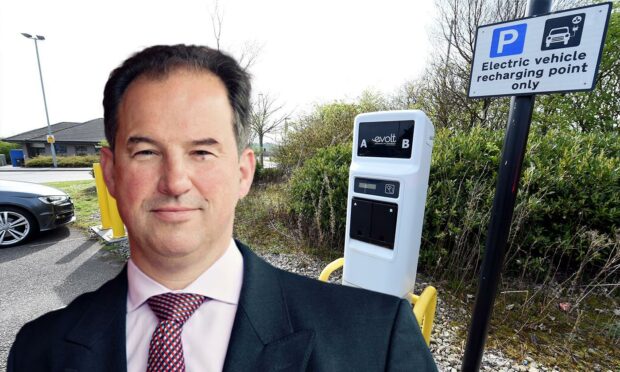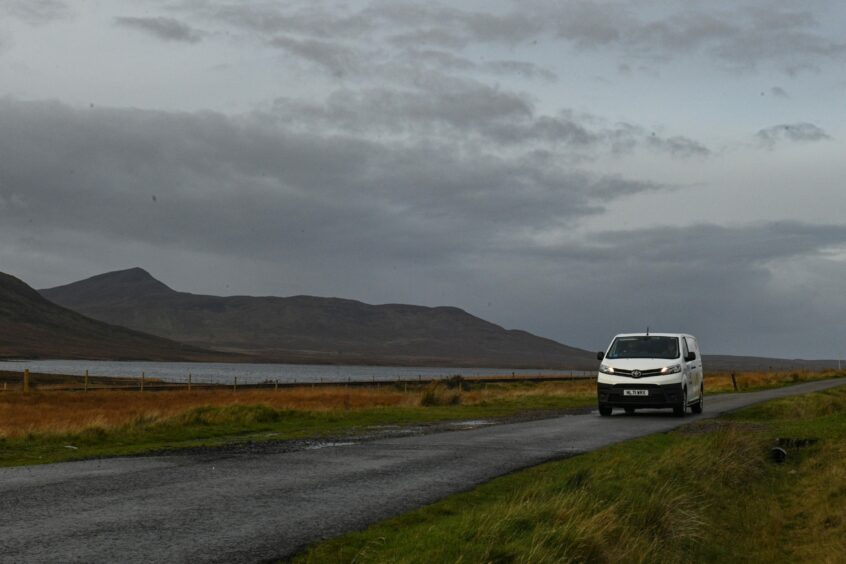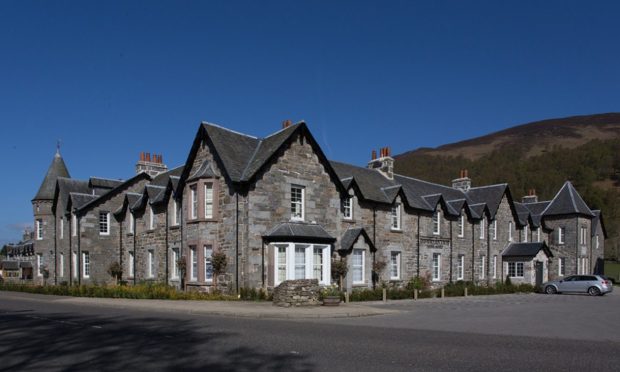Electric vehicles are fine for “pottering” tourists but without more efficient charging points businesses won’t be able to afford going green.
That’s according to Tim Allan. He is the president of the Scottish Chambers of Commerce and director of forecourt giant Motor Fuel Group.
He said: “For people trying to do business in Scotland who want to move to EVs, we have nowhere near the infrastructure required to do that, and the private sector doesn’t have the money.
“So the First Minister needs to put in serious power generation, and serious power distribution all over Scotland, right up the glens.”
The leading businessman has extensive links to the Tayside and Fife economy. His property company Unicorn Property Group was one of the key players behind Dundee’s City Quay transformation.
He is also chair of V&A Dundee and a former president of Dundee and Angus Chamber of Commerce.
He spoke with us about the impacts of moving away from fossil-fuelled transport after journalists from The Courier and sister title The Press and Journal took an electric van journey from John o’Groats to Glasgow.
‘The ambitions for electrifying and going green are all there’
Earlier this year MFG announced plans to invest £400 million in ultra-rapid EV chargers across its network of more than 900 forecourts across its UK .
As part of these plans, around 3,000 such chargers are set to be installed at 500 of its sites by the end of 2030.
Tim explained MFG is experiencing a “50% increase month on month for the number of charges that we expected.”
He said across the country, “the ambitions for electrifying and going green are all there”.
But in order to get more people and businesses to go electric, Tim believes the private sector will need to play a key role.
He also thinks the government should do more to ensure the potential for the technology is available for both rural and urban communities.
Tim touched on our writers’ EV journey from Aviemore to Peterhead, which was delayed due to required charging points on the optimal route being occupied or broken.
He said it as an example of how he thinks Scotland’s charging point infrastructure needs to be improved to satisfy business needs.
Our road ahead… this section of the north-east is rubbish for rapid charger availability so we've got to be as efficient as possible #ClimateRoadTrip pic.twitter.com/WCMqMqOOZa
— Kieran Beattie (@KNBeattie) October 23, 2021
“You guys had to drive across to Peterhead. What you did was allow a long time in order to do all your charging on the route, to get to Peterhead in time, and even then you were two hours late because of all the closures and so forth.
“In the business world, which operates on a just-in-time supply chain, you’re going to have to change the speed at which we do business.
“This is anti-competitive compared to our competitors across the world.”
‘We are nowhere near the infrastructure required’
Tim said he has discussed the topic of EVs on social media, and noted a discrepancy between those using EVs for leisure and tourism, and those who need to get around speedily to ensure their business is profitable.
After two broken rapid chargers in Keith then Huntly, we're plugged in at Inverurie! Quite the diversion for our planned route to Peterhead but no other options unless we wanted to run out of juice, as we were down to about 25% #ClimateRoadTrip pic.twitter.com/Jd6T9F9GD0
— Kieran Beattie (@KNBeattie) October 23, 2021
“People have said to me on LinkedIn, I went around the Western Isles over two weeks in an EV with no problem at all,” he said.
“If you’re pottering about the west of Scotland in your car one summer, well that’s up to you.
“What I care about is a timely, efficient, and cost-effective supply chain which means businesses in Nigg, in Inverness, and in Argyll and Bute can function and compete with international competitors.
“EV in Scotland currently doesn’t do that right now.”
A Transport Scotland spokesman argued that Scotland “already leads the way on electric vehicle charging infrastructure.”
He said: “The latest figures show that Scottish electric vehicle drivers benefit from almost 40 public charge points per one hundred thousand people.
“That is compared to fewer than 30 in England, just over 20 in Wales and less than 20 in Northern Ireland.”












